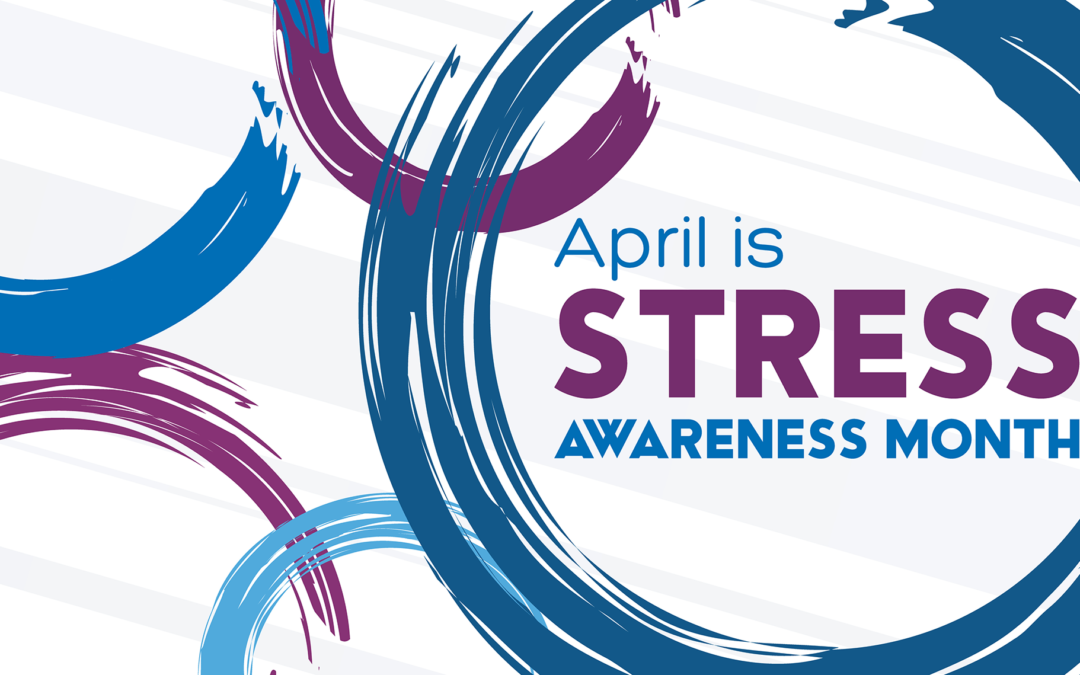April is Stress Awareness Month
April is Stress Awareness Month and has been since 1992, this year it’s particularly important. Experiencing stress is a normal part of life. It is how the body and brain react to any change requiring an adjustment or response. The body reacts to these changes with emotional, physical, and mental responses.
People often describe the feeling of stress as being under pressure. This feeling can come from many aspects of day-to-day life. Stressors can be from internal and external factors.
Episodes of stress may be one-time or short-term, this is acute stress. Chronic stress is when episodes of stress happen continuously over a period of time. Everyone copes with stress differently, some more effectively and quickly than others.
Different Types of Stress and Symptoms
Stress and Your Body
When you experience stress, your brain undergoes chemical and physical changes. Stress hormones are released that trigger hormonal and physiological changes. Your brain becomes more alert. Your heart rate and blood pressure increase. Your muscles tense. These reactions are good because they help you handle the situation causing stress. This is known as the ‘fight or flight’ response. This response evolved as a survival technique allowing us to quickly respond to life-threatening situations.
However, other stressors that are not life-threatening may also cause these changes. These stressors include financial issues, problems at work, arguments, traffic jams, public speaking, flying, and family difficulties. Experiencing ongoing stress keeps your body in an alert state, even though there is no danger. Over time, this can put you at risk for health problems.
Stress and Your Health
Chronic stress can lead to many illnesses like heart disease, digestive issues, stroke, and even cancer. That is why it’s important to manage stress levels. In addition to reducing your risk of illness, managing stress in your everyday life can improve your mood, boost immune function, and promoting longevity.
Mental and emotional conditions can be caused by stress, such as anxiety, depression, phobias, and panic attacks. Emotional stress can make it difficult to focus and make decisions. It can also affect your memory. Stress may also cause you to be short-tempered, irritable, and frustrated. These psychological effects impact overall health and well-being.
Treatments for Stress
Did you know that not all stress is bad?
There is another type of response, known as the challenge response. The challenge response occurs in stressful situations that are not as threatening. Similar to fight-or-flight response, our body prepares us for the challenge we are faced with. Adrenaline levels, heart rate and breathing rate increase, but different hormones are released. The hormones released in this state are “feel good” hormones. The challenge response gives you an energy surge and boosts your ability to perform under pressure. Concentration, confidence, and mental clarity are enhanced. Athletes, surgeons, actors, and performers may refer to being in the state as being “in the zone”.
Need Help Managing Your Stress?
Stress Awareness Month Challenge
During Stress Awareness Month, challenge yourself to take a look at the common stressors in your life. See what steps you can take to reduce these stressors. Notice how your body reacts under stress. Learn ways to reduce the level of stress in your body.
To get you started. here are 13 Strategies to help you manage stress!



